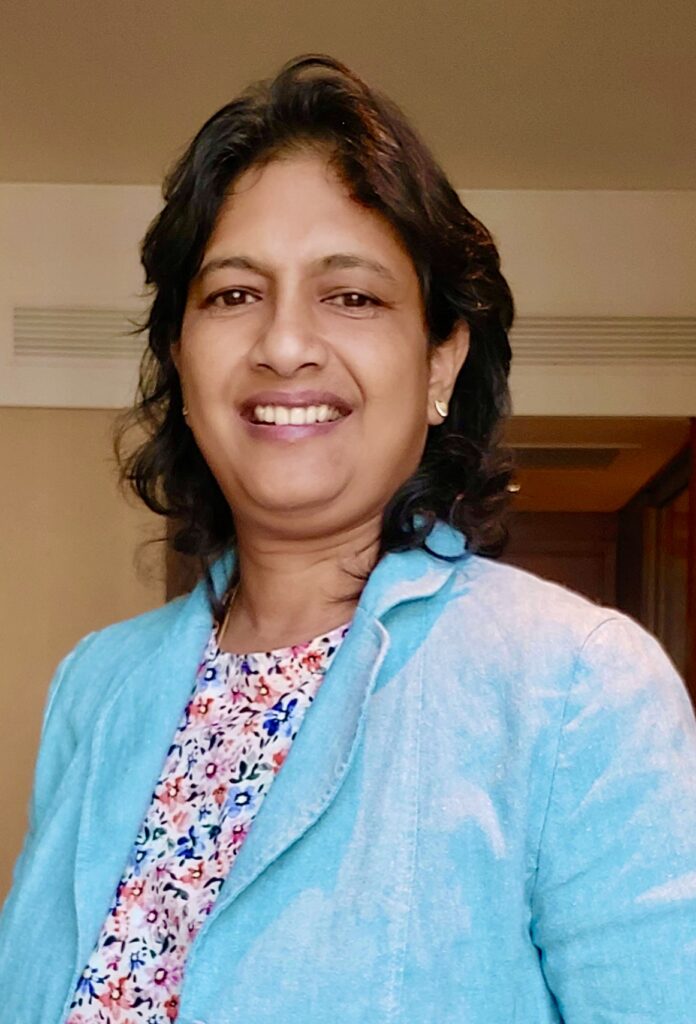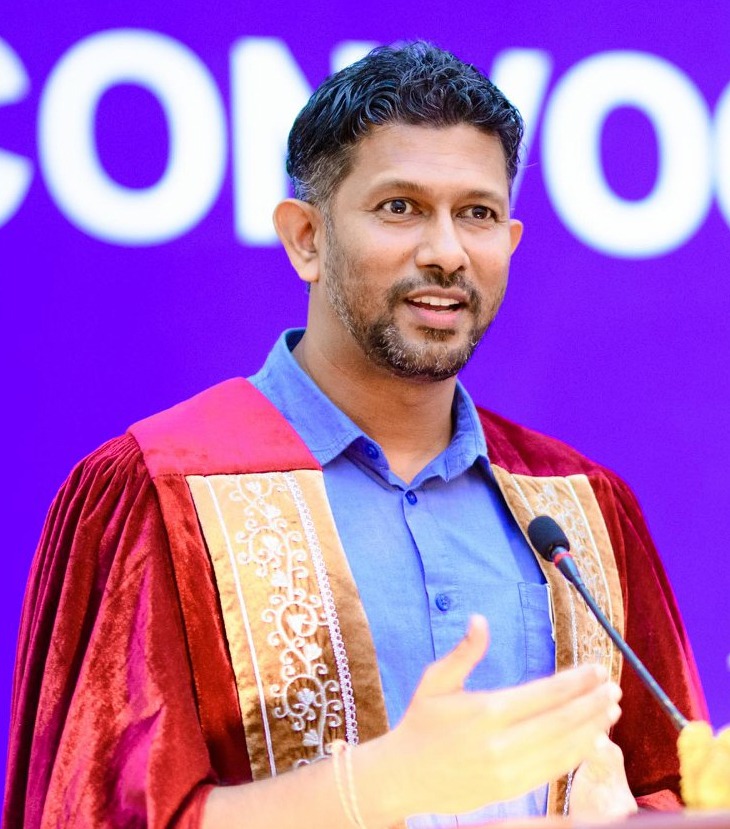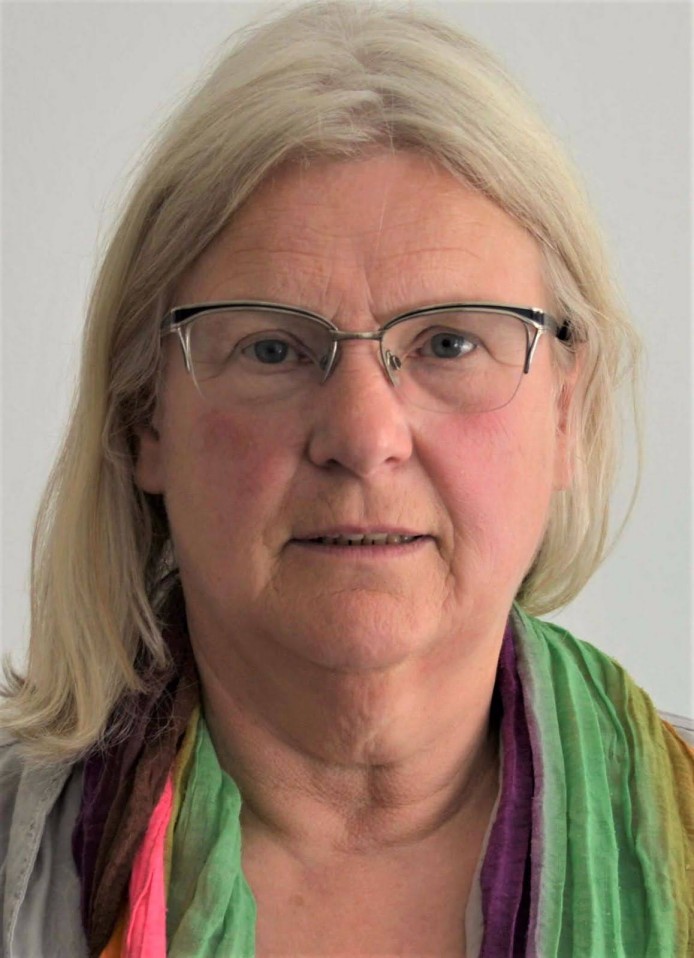
Professor Meththika Vithanage
Ecosphere Resilience Research Center, Faculty of Applied Sciences, University of Sri Jayewardenepura, Sri Lanka
The UWA Institute of Agriculture, University of Western Australia, Australia
Sustainability Cluster, University of Petroleum and Energy Studies, Dehradun, India
Biochar: Cultivating Innovation at the Intersection of Science, Research, and Technology
Biochar, an organic matter derived from biomass pyrolysis, is a game-changing catalyst that fosters innovation across multiple disciplines by combining science, research, and technology. With its porous structure and unique features, this carbon-rich material offers a path to dramatic breakthroughs in agriculture, environmental sustainability, and renewable energy. Its use as a soil additive improves soil health, increases nutrient retention, and reduces greenhouse gas emissions. Furthermore, the role of biochar in carbon sequestration is a possible alternative in the fight against climate change. Biochar is used as an alternative to activated carbon in wastewater and water treatment due to its universal nature in remediating emerging contaminants, however, the capacity needs to be improved. Moreover, biochar gained its attention as a material from waste conversion. Biochar, as an innovative construction resource, blends smoothly with concrete, increasing its strength, durability, and sustainability while lowering carbon footprints. Biochar’s conductivity and porosity promote developments in capacitors, resulting in high-performance and environmentally beneficial solutions. Furthermore, the advent of nanobiochar opens a new horizon for biochar nanostructures to be used in cutting-edge biomedical and environmental applications. This abstract digs into biochar’s increasing horizons, charting its progression from soil amendment to a key substance in construction, electronics, and nanotechnology. Biochar is a revolutionary force pushing innovation, supporting scientific curiosity, and accelerating technology discoveries toward a sustainable and resilient future through interdisciplinary collaborations and tireless research.

Dr. Karl O. Jones
CEng BEng MInstMC MIET MIEEE FHEA
Applied Forensic Technology Research (AFTeR)
School of Engineering
Liverpool John Moores University
Audio and Video Forensics: A New Area For Research and Teaching
The SLTC Research University is honored to host a distinguished keynote speaker at the upcoming IRC 2023 Conference, representing Liverpool John Moores University. The speaker, an expert in the field of audio and video forensics, will delve into the compelling realm of this critical discipline, shedding light on its pivotal role in contemporary investigations.
The keynote address will feature insightful case studies, emphasizing the significance of audio and video forensics in solving real-world challenges. Through engaging narratives, the speaker will illustrate the invaluable contributions of this field to unraveling complex scenarios, emphasizing why it deserves recognition as a new degree program.
Furthermore, the speaker will unravel the vast opportunities awaiting students and professionals in the realm of audio and video forensics. Drawing from the experiences at Liverpool John Moores University, the keynote will highlight the university’s successful collaborations with both state and non-state organizations. These partnerships underscore the commitment to cutting-edge research, showcasing the practical applications and relevance of audio and video forensics in various sectors.
Attendees can anticipate a comprehensive exploration of the collaborative efforts undertaken by Liverpool John Moores University, offering a glimpse into the diverse projects and initiatives aimed at advancing the understanding and application of audio and video forensics. This keynote address promises to be an enriching session, providing valuable insights into the field’s importance, potential, and the exciting prospects it holds for academic and professional pursuits.

Prof. R.U. Halwatura
Department of Civil Engineering,School of Engineering
University of Moratuwa, Sri Lanka.
Nature inspired Solutions (NIS)
More the technology, more the complexity people relish every day. Further, the more we try new things, the more we threaten nature and the environment. The term sustainability has applied in the field and yet to do a post-mortem and reveal to check whether it has applied in the same way as it was defined. The world population increases beyond what it can bear and in addition, their needs are more sophisticated. Furthermore, modern science is trying to use all its powers to solve these sophistications within its ability, leading to many sophisticated solutions. Even within these sophisticated solutions, again the science will be used to find the best out of all. That’s where the modern world has mistaken the whole good concept of sustainability, more than it was mistaken, it’s more a misuse of the great concept for our own short term goals.
However, this whole practice is questionable and needs to adjust soon. Unless it will lead to irreversible damage to the present and to the future. the world should move; new things should be found. New knowledge should be surfaced. That makes the world progress. However, the origin of this matters to define its sustainability.
There are enough examples from history in every field that they were inspired by nature for the technology which they have used. From construction to agriculture to medicine to any field of study, the seed and the inspiration was mainly from nature and that made it more sustainable as well as matched the needs of the society while doing the minimum harm to nature.
The Nature Inspired Solutions (NIS) is Undoubtedly the future of science and inventions in the future. From history to today, there are many cutting edge technologies, which were real breakthroughs, and which were initiated from nature, however, for us to feel the real sense of nature, we need to escape from the technological trap which we are in today. Hence, it’s high time for us to go back to the human mode from the auto mode, so within the complexity, the nature will mould you in such a way to stay away from the complexity, find the solutions either natural or near natural way and have a happy life with the minimum harm to the nature while keeping a better space for the future to plan their life as they wish.

Dr. Eng. Ingrid Rügge
International Graduate School for Dynamics in Logistics (IGS)
at BIBA at the University of Bremen
Hochschulring 20, 28359 Bremen, Germany
Exploring Aspects of International Interdisciplinary Research and Education
Dr. Ingrid Rugge, the esteemed managing director of the International Graduate School of Dynamics in Logistics (IGS) at the University of Bremen, will deliver a keynote address on “Exploring Aspects of International Interdisciplinary Research and Education” at the upcoming conference. Drawing on extensive experience in the realm of interdisciplinary research and education, Dr. Rugge will illuminate key facets of fostering collaboration and knowledge exchange across diverse academic disciplines.
The keynote will delve into the significance of international collaboration in addressing complex challenges and advancing cutting-edge research. Dr. Rugge will share insights derived from overseeing the IGS, a dynamic hub within the ‘Bremen Research Cluster for Dynamics in Logistics – LogDynamics.’ Attendees can expect to gain a comprehensive understanding of the strategies and methodologies employed to facilitate effective interdisciplinary research, emphasizing the role of international partnerships in fostering innovation.
Furthermore, Dr. Rugge will explore the transformative impact of interdisciplinary education on shaping the next generation of scholars. The keynote will address the challenges and opportunities inherent in designing curriculum and mentorship programs that encourage a holistic approach to problem-solving and critical thinking.
As an accomplished academic with a strong background in human-computer interaction and wearable computing, Dr. Rugge’s keynote promises to be an enlightening session for conference participants seeking insights into the intricate dynamics of international interdisciplinary research and education. Attendees will leave with a renewed appreciation for the collaborative efforts that drive innovation and contribute to the advancement of knowledge in an ever-evolving academic landscape.
